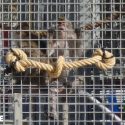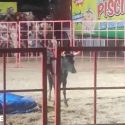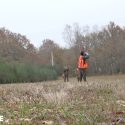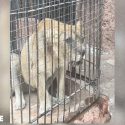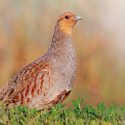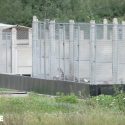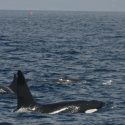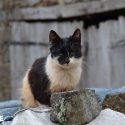Camarney: 30,000 macaques for animal testing laboratories
Camarney: 30,000 macaques for animal testing laboratories
01.09.2023
Spain
Camarney: 30,000 macaques for animal testing laboratories
Animal testing
For more than twenty years, our partner Abolición Vivisección has been fighting against the Spanish centre Camarney, part of the Noveprim company, which captures and breeds macaques from Mauritius. According to a new report from the association, with more than 30,000 crab-eating macaques being sold since 2005, Camarney is the biggest importer of primates in Europe.
Our partner Abolición Vivisección’s fight in Spain is very similar to the one that we led in France against dog breeding farms and primate imports for years, and their report describes the problems that we know all too well.
Therefore, the creation of Camarney was widely debated between 1999 and 2005, the legality of the authorisation issued by the town mayor having been called into question. A situation that reminds us of our opposition to the opening of United States giant Marshall in Montbeugny at the same time. But unlike us, Spanish associations did not win their case.
Camarney, le plus grand centre de distribution et d’expérimentation de primates d’Europe
A network with questionable practices
Until recently, the majority of animals sold by the Spanish centre were imported from Mauritius. But in recent years, it has diversified its sources by turning to Vietnam, where crab-eating macaques are threatened by extinction. They are supplied in particular by Nafovanny, suspected of illegal captures in direct connection with Vanny Bio-Research in Cambodia, who are under investigation for illegal trafficking.
The Cambodian company, that One Voice already reported on regarding the capture and exportation of animals in 2008, had falsified primates’ exportation documents with the aim of making people believe that the monkeys captured had been bred in captivity. A truly worrying possibility when we know that Camarney sold primates throughout Europe – and in particular in France.
Infractions that were never punished
The report from Abolición Vivisección also reported on the lack of inspections despite the presence of repeated non-conformities over the years. Among the stated problems, we found the great classics that we know well in France: the staff are not sufficiently trained and the ethical committee is full of conflicts of interests.
When it comes to macaques, the company is no better. Other than the fact that their tally is approximate, their veterinary follow-up is not tracked and the causes of their deaths are not noted anywhere. Worse: the cages are not well secured, the temperature and humidity of the rooms does not correspond to the regulatory standards, and primates sold as “free from specific pathogens” are in fact regularly exposed to these pathogens – which means that the results of the tests that they are used for are falsified…
You can help monkeys
To encourage the Catalan government and the town of Camarles to put an end to these shameful practices, we encourage you to write to them.
You can send a polite email to conselleria.accioclimatica@gencat.cat and ajuntament@camarles.cat using the following template:
Dear Sir or Madam,
I have heard about the activities of the Camarney company thanks to the One Voice and Abolición Vivisección Associations.
It has shocked me profoundly to learn that such an establishment, despite repeated infractions, is not inspected every year or sanctioned as European regulations require. I am also concerned about its links with Vietnamese and Cambodian companies suspected of the capture and illegal trafficking of macaques in danger of extinction, who can then be sold by Camarney to European laboratories, in particular in France.
Animal testing is destined to disappear thanks to the development of research methods without animals (which are just as reliable, or even more so), which have increased in recent years. It is the duty of public authorities to facilitate this transition. I am therefore joining the associations to ask you to close the Camarney centre.
I thank you in advance for your attention to this letter.
Yours Sincerely,
You can also share these messages on Twitter/X:
With @onevoiceanimal and @StopCamarles, I am calling on @gencat and @ajcamarles to put an end to the impunity at Camarney and to stop trading primates for #AnimalTesting. Let’s prioritise the development of animal-free alternatives! https://one-voice.fr/news/camarney-30-000-macaques-pour-les-laboratoires-dexperimentation-animale/
Camarney does not respect the law and works with businesses suspected of the illegal trafficking of macaques captured in the wild. @gencat, @ajcamarles, I am asking for the closure of Camarney. Stop #AnimalTesting! @onevoiceanimal @StopCamarles https://one-voice.fr/news/camarney-30-000-macaques-pour-les-laboratoires-dexperimentation-animale/
Translated from the French by Joely Justice
